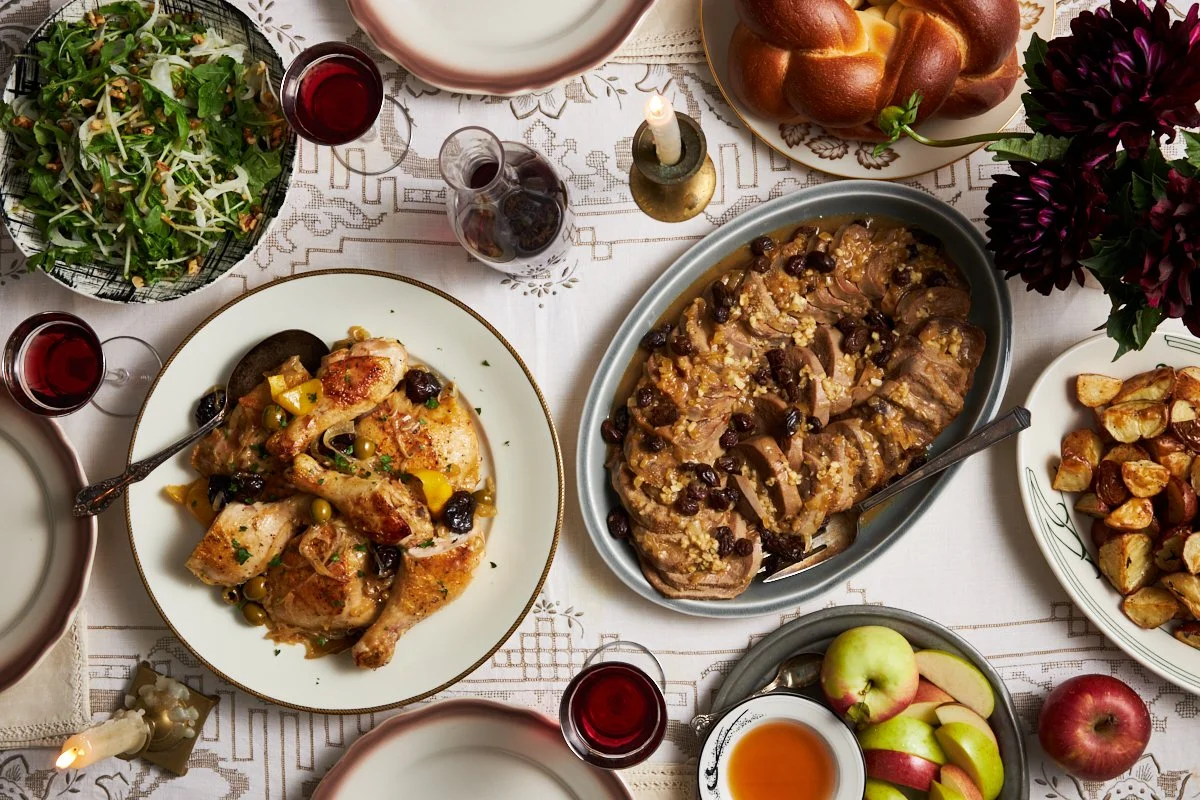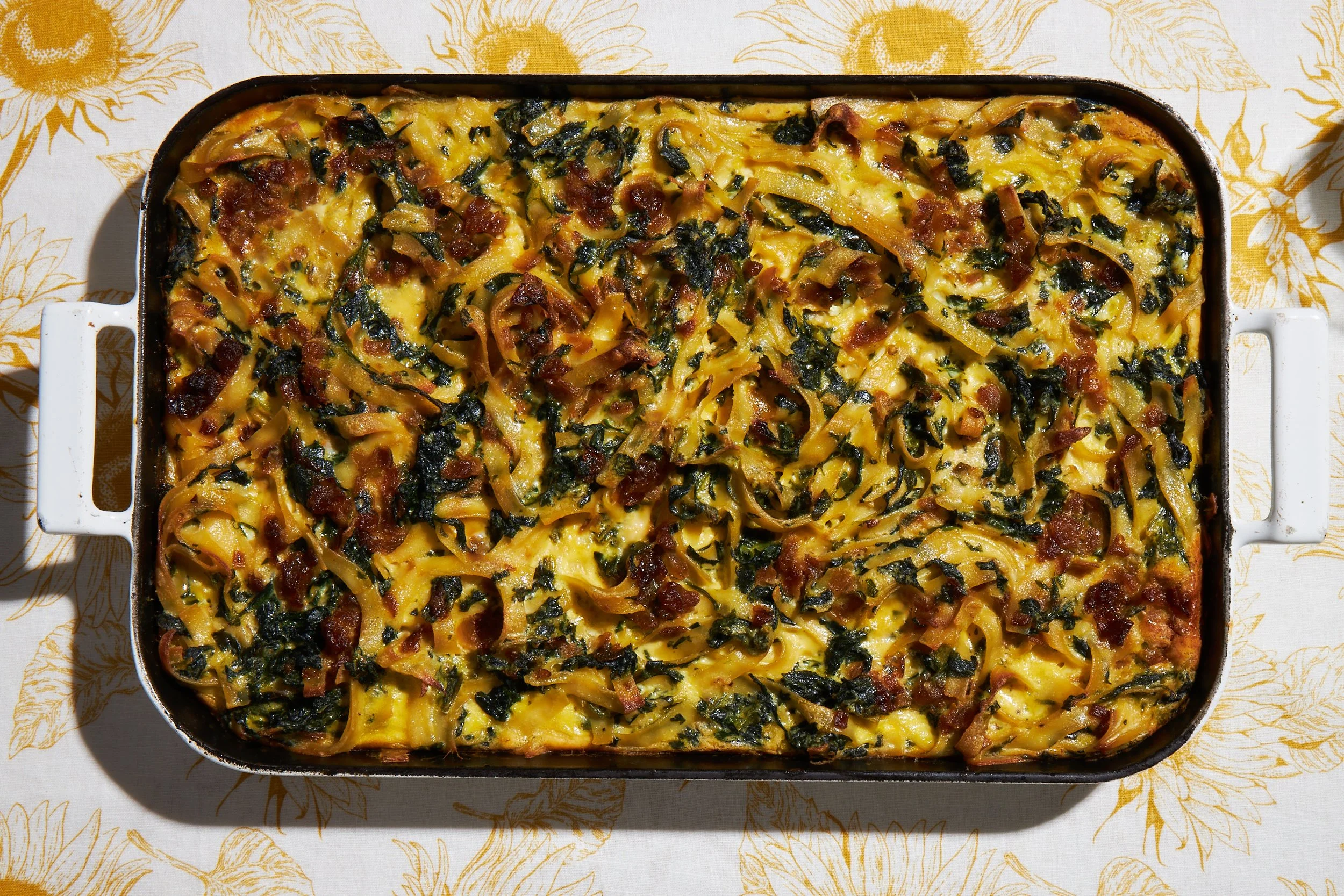From Russia, to Israel, to Brooklyn, The Borscht That’s Always on This Family’s Stove
Shared by Shifra Klein
Recipe Roots: Outside of Moscow > Kiryat Malakhi, Israel > New York City
In Shifra Klein’s family, hot borscht made with beets, flanken, tomato paste, and cabbage has sustained four generations across three continents — anytime of the year. “[In] August, I could be making borscht,” Shifra, the editor-in-chief of Fleishigs Magazine, says.
In Russia, outside of Moscow, where her mother Ita grew up in a deeply religious home, “a pot of soup like borscht would literally feed the family for a week. Each night it may have been served up a bit differently; one night with bread, or pickles, fresh salad, boiled eggs etc,” explains Shifra. Here, Shifra’s great grandmother Leba was the one who made the borscht for everyone. “Family was such a big part of their lifestyle,” she adds and three generations lived together under one roof.
Much of their family life changed in 1971 when they moved to Israel seeking religious freedom. Money was tight after the move and religious life was different as well. “In Russia, all religious Jews were pretty much in the same boat and in Israel there were so many nuanced differences,” Shifra explains.
Shifra's great grandmother Leba with her daughter Yehudis and Yehudis's eldest son in 1950s Russia.
In Israel, Leba’s recipes were passed to the next generation and Shifra’s grandmother Yehudis became the cook in the family. A math teacher and later a school principal, Yehudis balanced a career in education, strict religious observance, and cooking.
Yehudis became a master of the borscht, and at times shared the responsibility of cooking with Shifra’s grandfather. “I remember how my grandparents made the borscht together and it took them hours...but most memorable was the absolute joy they had to serve it to their loved ones,” Shifra explains. During the summers, when Shifra was little, her grandparents would visit her family in Crown Heights, Brooklyn where they lived — and there was always a pot of borscht on the stove when they were in town.
Anyone who stopped by was sent home with a container of the soup or salt and pepper kugel. “They [were] giving out door prizes of borscht,” Shifra jokes. But the practice left a deeper impression as well. “Like with many people — with many immigrants especially — when they have food to offer, they need to offer it,” she says. “It’s their way of expressing their love to you.”
When Shifra got married, her husband insisted they get the family borscht recipe from Shifra’s grandmother Yehudis. “She wrote it on the back of a tissue box,” says Shifra. “It’s so nostalgic.” Today, that original is preserved — tucked away in Shifra and her husband’s safe.
Borscht
Makes: 8-10 servings
Time: 3 hours
Ingredients
1 tablespoon vegetable oil
2 pounds flanken beef with bones
3 teaspoons kosher salt, divided
¼ teaspoon ground black pepper
6 beets, scrubbed and rinsed
1 onion, finely chopped
3 cloves garlic, finely chopped
2 medium carrots, peeled and sliced into ¼ inch pieces
3 medium yukon gold potatoes peeled and chopped into ½ inch cubes
1 green pepper, deseeded and finely chopped
2 bay leaves
6 ounces tomato paste
2 tablespoons granulated sugar
Juice of 1 lemon
½ head green cabbage, quartered, core removed and thinly sliced
Fresh dill for garnish
Preparation
1. Heat the oil in a large pot, over medium high heat. Season meat on both sides with 1 teaspoon salt and ¼ teaspoon black pepper. Once the oil is sizzling add the meat and sear on both sides until golden brown, about 6 to 8 minutes per side.
2. Place the whole unpeeled beets into the pot with the meat along with enough water to cover the beets and meat completely. Place a lid on the pot and bring the mixture to a boil, about 10 minutes. Reduce the heat to low and continue cooking over a gentle simmer for 40 minutes, until beets are tender enough to peel, skimming off any white scum that floats to the surface occasionally.
3. When the beets are tender enough to peel, remove them from the pot and let them cool slightly. Peel the beets using a towel or gloves. Grate the beets using a box grater and return them to the pot.
4. Add the onion, garlic, carrots, potatoes, green peppers, bay leafs and 2 ½ teaspoons of salt. Add more water if necessary to cover the vegetables. Increase the heat to high and bring the mixture to a boil, about 10 minutes. Reduce the heat to low, place a lid and simmer for 1 hour.
5. Reserve 1 tablespoon of tomato paste aside. Add the remaining tomato paste, lemon juice, and sugar in a small bowl and mix until smooth. Add the mixture to the pot along with the shredded cabbage. Continue cooking the soup covered and over a simmer for 30 more minutes, until the cabbage is tender and takes on the borscht’s purple hue. Turn off the heat.
6. Remove the meat from the soup. Allow the meat to cool enough to handle and shred the meat with your hands or a fork. Discard the meat bones. Place the shredded meat back into the pot with the reserved tablespoon of tomato paste and stir well. Place the pot over high heat and bring it to a boil. Reduce the heat to low and continue simmering the soup covered for another 15 minutes.
7. Serve the borscht hot and garnish with a few sprigs of fresh dill.


















